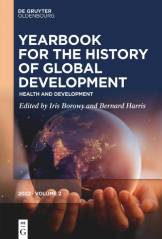November 20th, 2022

Carolina Maria de Jesus. 22 de dezembro de 1960. Photo: Instituto Moreira Salles
The Black Consciousness Day is held every November 20th to remember the death of Zumbi dos Palmares, one of the pioneers of resistance to slavery.
We have selected articles that address, from a historical perspective, racial issues in Brazil and the sad slave past that had deep and lasting consequences to our society.
A morphology of ‘quilombos’ in the Americas, sixteenth-nineteenth centuries – The The paper written by Manolo Florentino (Universidade Federal do Rio de Janeiro) and Márcia Amantino (Universidade Salgado de Oliveira) presents a study on “quilombos” in slave societies in the Americas.
Tetanus among slaves and freeborn in Brazil – Ian Read, from Soka University, talks about tetanus in 19th century Brazil. According to him, the story about health and medicine is needed to understand the transition from empire to the republic.
Slave mortality during the cholera epidemic in Rio de Janeiro (1855-1856): a preliminary analysis. Kodama, Kaori et al. Hist. cienc. saude-Manguinhos, Dez 2012, vol.19, suppl.1.
On slaves and genes – How genetics can contribute to the debate about affirmative actions aiming to mitigate the inequalities created by slavery? The anthropologist Elena Calvo-González analyses genetic studies of the Brazilian population.
Brazilian eugenics and its international connections – In the early twentieth century, when many linked Brazil’s economic and social backwardness to its racial miscegenation, anthropologist Edgard Roquette-Pinto swam against the tide, refuting the notion that the Brazilian people were “inferior” and valorizing the country’s mestizo biology instead.
Race and the Rockefeller Foundation From 1927 to 1942, the Rockefeller Foundation ran a tuberculosis commission in Jamaica. This paper explores the role that race played in it.






